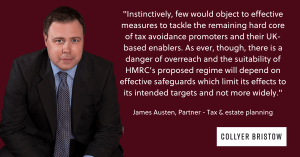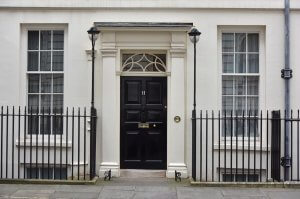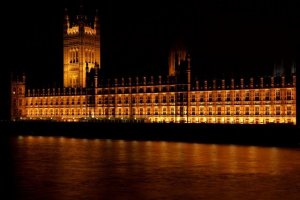- UK trusts, tax and estate planning
- Wills & Succession Planning

Longer Reads
Coronavirus: Tax and Estate Planning Tips in the Lockdown
We have put together a helpful list of the important tax and estate planning tips you should be thinking about during the lockdown.
3 minute read
Published 7 April 2020
Key information
- Specialisms
- Private Wealth
Being optimistic, we have been giving some thought to what positives we can draw from these dark and difficult times. Being at home for an extended period and having more time provides an opportunity to get on with the tasks we have been putting off for some time. As the realities of the pandemic now set in, it also gives us pause for thought and reminds us of the importance of looking after our loved ones both now and in the future.
With this in mind, we have put together a helpful list of the important tax and estate planning tips you should be thinking about during the lockdown:
(1) Review your Will
We list this first since it is probably the most important item on your “to do” list. You should regularly review your Will to check that it is up to date and reflects your wishes. We generally recommend that clients review their Wills every 3 to 5 years, or as and when significant life events occur (e.g. marriage, the birth of children/grandchildren etc.,) and update them as necessary. If you don’t yet have a Will, it’s now more important than ever to put this in place.
A consultation is ongoing about whether the rules regarding execution of Wills can be relaxed in the current circumstances. Nevertheless, even with the existing rules, Wills can still adequately be signed in the presence of two independent witnesses by ensuring that everyone keeps a safe two metres distance from each other (and brings their own pen!)
(2) Make some gifts
The current economic environment is bleak. Recent weeks have seen the pound hit a 35 year low against the dollar and share values have similarly plummeted to all-time lows. If you are minded to make some gifts, now is an ideal time to review your assets and make those gifts since there are capital gains tax (CGT) and inheritance tax (IHT) advantages in doing so.
Making a gift is a disposal for CGT purposes. Any gain (or loss) on the asset is assessed at the time of the gift and may trigger a CGT charge. The current rates of CGT for higher rate taxpayers are 28% on gains from residential property and 20% on gains on everything else. The current CGT tax-free annual allowance is £12,300. With the value of assets at their lowest for some time, now would be a good time to review current market values and see what assets you can gift with little or no CGT to pay.
For IHT purposes, any such gifts are Potentially Exempt Transfers (PETs). Provided you survive any gifts by seven years, the gifts will fall out of account completely for IHT purposes. If you die within that seven year window, any gifts which you have made in the seven years prior to death are clawed back into your estate on death and potentially subject to IHT. Taper Relief can apply to reduce the rate of IHT if a gift is survived between three to seven years.
Importantly, it is the market value of the gift at the time when it was made, and not the date of death, which is assessed for IHT. You could take advantage of depressed current market values to gift assets as tax-efficiently as possible.
(3) Review your pension
Every taxpayer earning up to £150,000 has an annual allowance of £40,000 which they can contribute tax-free to their pension. Any unused annual allowance can be carried forward up to three years to top up the allowance available in the current year.
You may have noticed that your expenditure has reduced recently since you are no longer spending your disposable income on restaurants, theatre trips and travel. Now would be a good time to review your pension contributions and top up your pension pot tax-efficiently where possible.
(4) Put Lasting Powers of Attorney (LPAs) in place
Lasting powers of attorney (LPAs) are a mechanism by which you are able to confer on another person, known as your ‘attorney’, the authority to make decisions about your health and welfare and/or your property and financial affairs in circumstances where you no longer have the mental capacity to make such decisions on your own.
If you to lose capacity to make health and welfare decisions for yourself, then in the absence of an appropriate LPA, other people would have to make those decisions on your behalf, for example medical staff or Social Services. An LPA gives you control over your affairs by specifying who you would like to make those decisions – ideally this will be someone who knows your wishes and will act accordingly.
LPAs also avoid delays that have financial implications. If you were to lose capacity and not have an LPA in place, your assets may be effectively frozen and no-one would have immediate authority to deal with them. This also applies to many jointly owned assets. Someone, most likely a family member, would have to apply to court to act as your deputy, an application that can take many months. During this time, no-one would be able to manage your assets, a daunting prospect in the current volatile markets.
LPAs are also of significance in protecting the interests of business owners and their organisations in the event of incapacity. You can read more on this here.
If you don’t already have LPAs in place, now is a good time to remedy that.
(5) Review your investments
As we have already mentioned, the current economic environment is bleak and share values have plummeted. Now is a good time to speak with your financial advisor and review your investment portfolio. The current depressed economic market may mean that you are able to pick up some bargains.
Related content
Longer Reads
Coronavirus: Tax and Estate Planning Tips in the Lockdown
We have put together a helpful list of the important tax and estate planning tips you should be thinking about during the lockdown.
Published 7 April 2020
Associated sectors / services
Being optimistic, we have been giving some thought to what positives we can draw from these dark and difficult times. Being at home for an extended period and having more time provides an opportunity to get on with the tasks we have been putting off for some time. As the realities of the pandemic now set in, it also gives us pause for thought and reminds us of the importance of looking after our loved ones both now and in the future.
With this in mind, we have put together a helpful list of the important tax and estate planning tips you should be thinking about during the lockdown:
(1) Review your Will
We list this first since it is probably the most important item on your “to do” list. You should regularly review your Will to check that it is up to date and reflects your wishes. We generally recommend that clients review their Wills every 3 to 5 years, or as and when significant life events occur (e.g. marriage, the birth of children/grandchildren etc.,) and update them as necessary. If you don’t yet have a Will, it’s now more important than ever to put this in place.
A consultation is ongoing about whether the rules regarding execution of Wills can be relaxed in the current circumstances. Nevertheless, even with the existing rules, Wills can still adequately be signed in the presence of two independent witnesses by ensuring that everyone keeps a safe two metres distance from each other (and brings their own pen!)
(2) Make some gifts
The current economic environment is bleak. Recent weeks have seen the pound hit a 35 year low against the dollar and share values have similarly plummeted to all-time lows. If you are minded to make some gifts, now is an ideal time to review your assets and make those gifts since there are capital gains tax (CGT) and inheritance tax (IHT) advantages in doing so.
Making a gift is a disposal for CGT purposes. Any gain (or loss) on the asset is assessed at the time of the gift and may trigger a CGT charge. The current rates of CGT for higher rate taxpayers are 28% on gains from residential property and 20% on gains on everything else. The current CGT tax-free annual allowance is £12,300. With the value of assets at their lowest for some time, now would be a good time to review current market values and see what assets you can gift with little or no CGT to pay.
For IHT purposes, any such gifts are Potentially Exempt Transfers (PETs). Provided you survive any gifts by seven years, the gifts will fall out of account completely for IHT purposes. If you die within that seven year window, any gifts which you have made in the seven years prior to death are clawed back into your estate on death and potentially subject to IHT. Taper Relief can apply to reduce the rate of IHT if a gift is survived between three to seven years.
Importantly, it is the market value of the gift at the time when it was made, and not the date of death, which is assessed for IHT. You could take advantage of depressed current market values to gift assets as tax-efficiently as possible.
(3) Review your pension
Every taxpayer earning up to £150,000 has an annual allowance of £40,000 which they can contribute tax-free to their pension. Any unused annual allowance can be carried forward up to three years to top up the allowance available in the current year.
You may have noticed that your expenditure has reduced recently since you are no longer spending your disposable income on restaurants, theatre trips and travel. Now would be a good time to review your pension contributions and top up your pension pot tax-efficiently where possible.
(4) Put Lasting Powers of Attorney (LPAs) in place
Lasting powers of attorney (LPAs) are a mechanism by which you are able to confer on another person, known as your ‘attorney’, the authority to make decisions about your health and welfare and/or your property and financial affairs in circumstances where you no longer have the mental capacity to make such decisions on your own.
If you to lose capacity to make health and welfare decisions for yourself, then in the absence of an appropriate LPA, other people would have to make those decisions on your behalf, for example medical staff or Social Services. An LPA gives you control over your affairs by specifying who you would like to make those decisions – ideally this will be someone who knows your wishes and will act accordingly.
LPAs also avoid delays that have financial implications. If you were to lose capacity and not have an LPA in place, your assets may be effectively frozen and no-one would have immediate authority to deal with them. This also applies to many jointly owned assets. Someone, most likely a family member, would have to apply to court to act as your deputy, an application that can take many months. During this time, no-one would be able to manage your assets, a daunting prospect in the current volatile markets.
LPAs are also of significance in protecting the interests of business owners and their organisations in the event of incapacity. You can read more on this here.
If you don’t already have LPAs in place, now is a good time to remedy that.
(5) Review your investments
As we have already mentioned, the current economic environment is bleak and share values have plummeted. Now is a good time to speak with your financial advisor and review your investment portfolio. The current depressed economic market may mean that you are able to pick up some bargains.
Associated sectors / services
- UK trusts, tax and estate planning
- Wills & Succession Planning
Need some more information? Make an enquiry below.
Enjoy reading our articles? why not subscribe to notifications so you’ll never miss one?
Subscribe to our articlesMessage us on WhatsApp (calling not available)
Please note that Collyer Bristow provides this service during office hours for general information and enquiries only and that no legal or other professional advice will be provided over the WhatsApp platform. Please also note that if you choose to use this platform your personal data is likely to be processed outside the UK and EEA, including in the US. Appropriate legal or other professional opinion should be taken before taking or omitting to take any action in respect of any specific problem. Collyer Bristow LLP accepts no liability for any loss or damage which may arise from reliance on information provided. All information will be deleted immediately upon completion of a conversation.
Close









































































